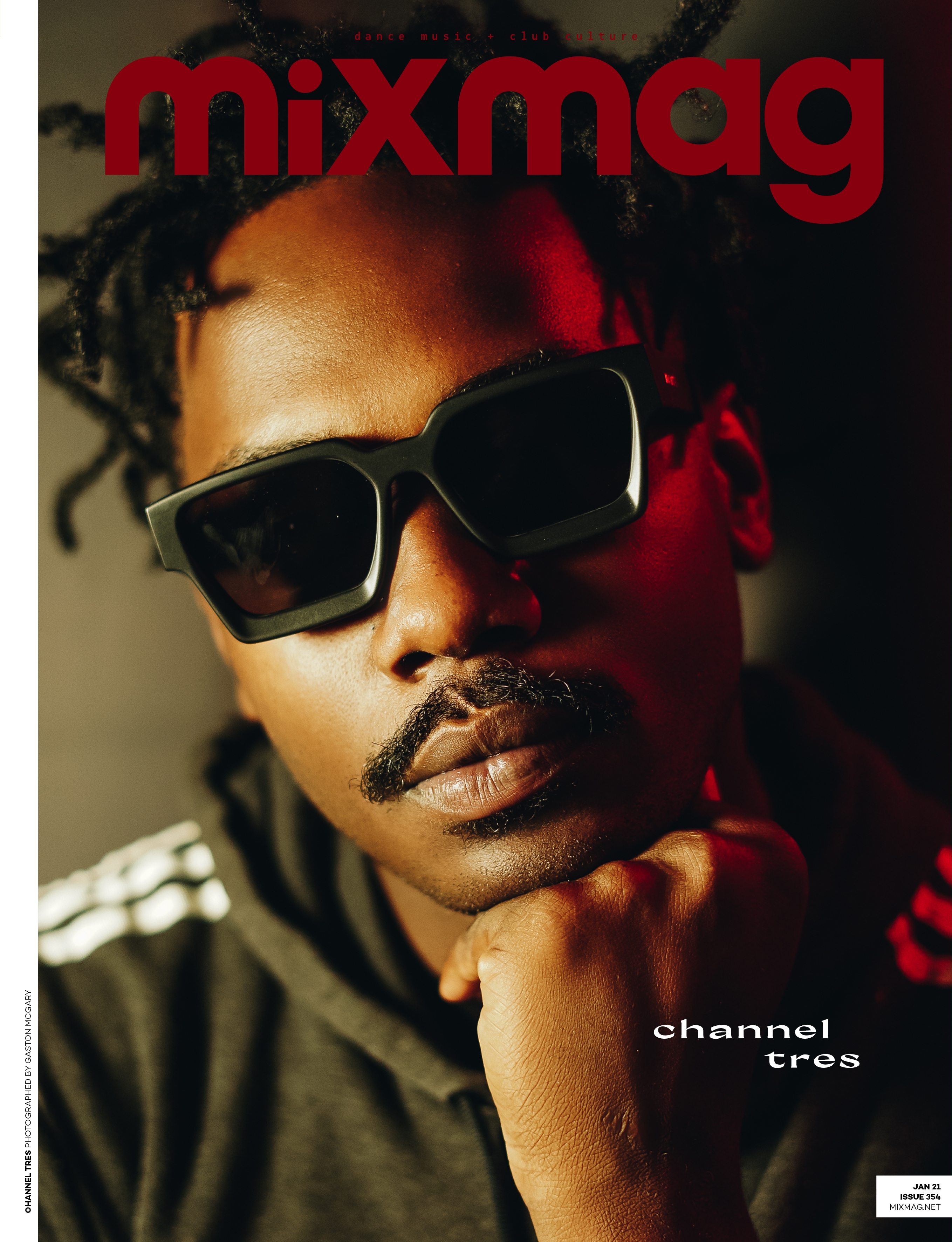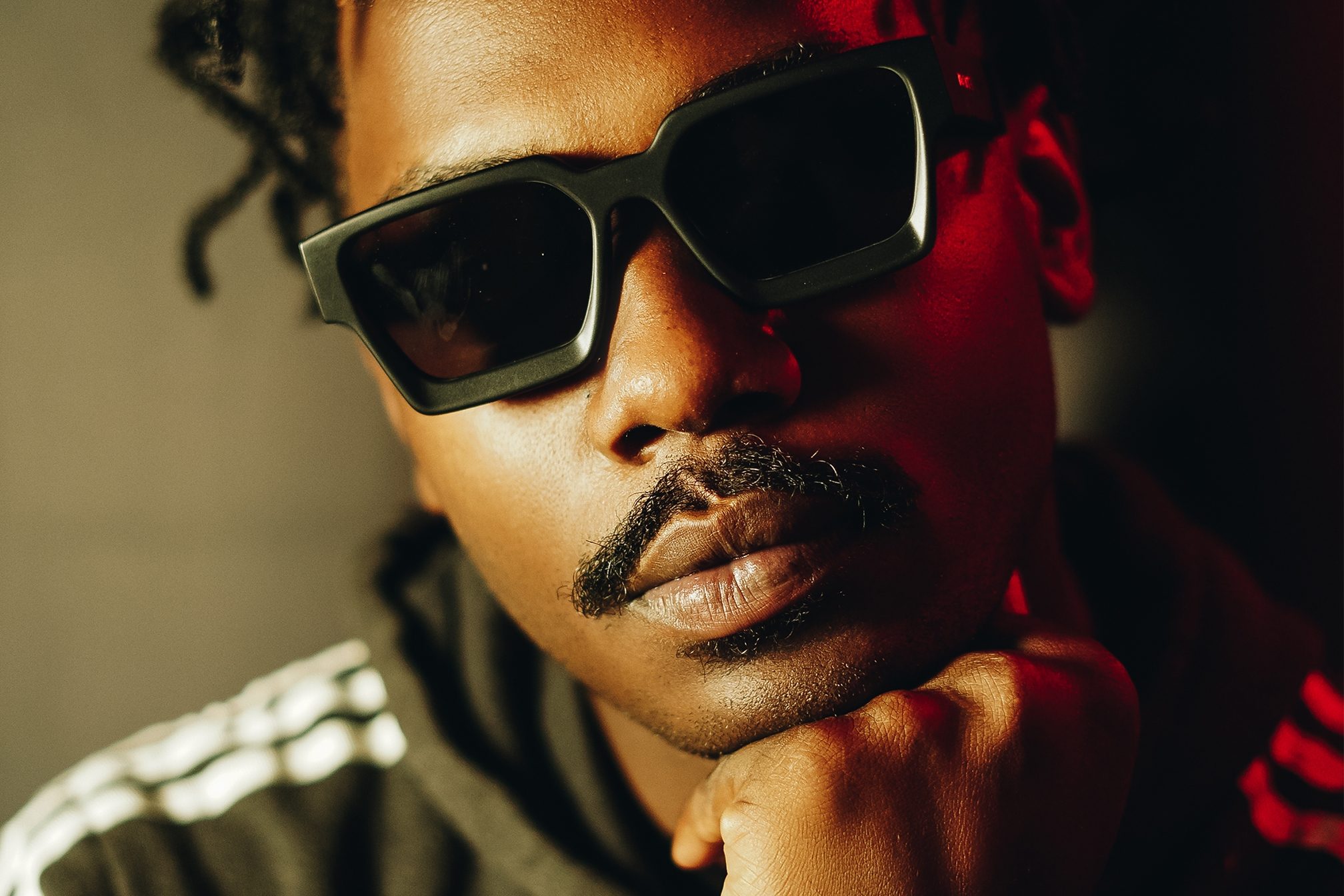 Features
Features
Making house music anthems helped Channel Tres learn self-love
Channel Tres talks to Reed Jackson about how channeling anger through art helped bring positivity back to his life
Channel Tres is still getting used to being stationary. By trade, the producer, who grew up between Compton and Lynwood in California, is a maestro of movement, whether it’s commanding dancefloors to let loose of their inhibitions or gyrating joyously himself on stage while on tour.
Since his self-titled debut EP in 2018, which introduced his Midwest-inspired brand of compelling vocal house music, he’s seldom been in one place very long, performing in arenas around the world with pop legends like Robyn and frequently being beckoned to the recording studio to help other artists finish their records, like Disclosure. He also recently featured on SG Lewis’ hit ‘Impact’ (again with Robyn) and has friends in high music places: a quick look at his Instagram reveals that Elton John is a big fan; and so is last month’s Mixmag cover star James Blake, as is Tyler, The Creator, who features on the woozy ‘fuego’ from Channel Tres’ new EP ‘i can't go outside’.
But just as the Coachella performance was booked and the rock stardom lifestyle seemed within reach, he was told to rush back to Los Angeles before the airports closed on account of COVID-19. Channel, whose chunky basslines and pulsing drumwork are designed to get crowds moving, suddenly had no dancefloors left to ignite.

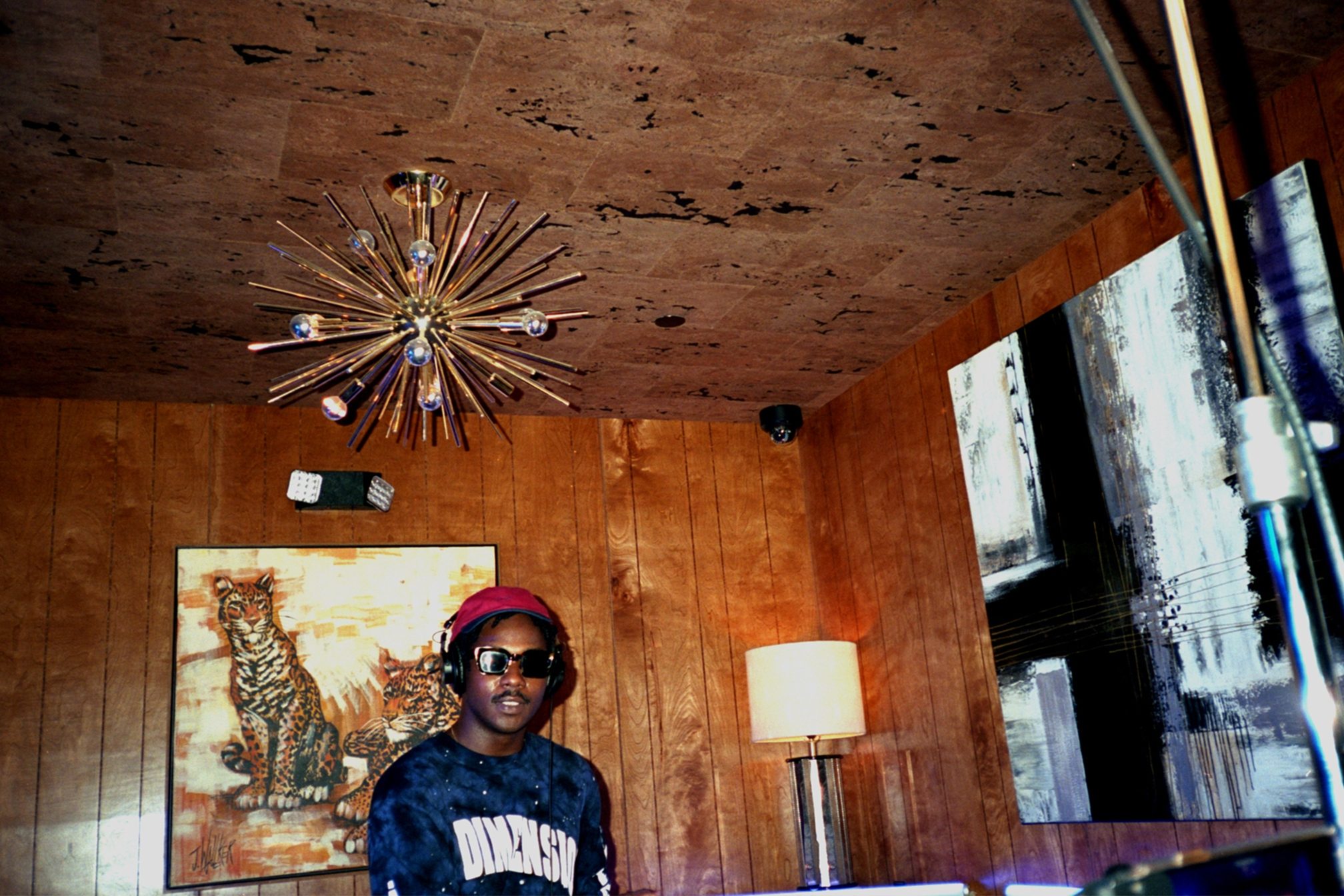
And so, like the rest of us, he’s been stuck inside. What does an artist who’s spent the past two years traveling and performing nonstop do when there’s nowhere to go and no one to perform to? They create, of course, whether they feel like it or not.
“Making music is never limited to good days because if you only work when you feel good, you will never get nothing done,” he tells me. “[It’s] my job, so things don’t happen if I don’t do anything.”
This mantra motivated Channel, real name Sheldon Young, to create an entire project reflecting his life in lockdown, aptly titled ‘i can't go outside’.
Read this next: The year of no gigs
Because of COVID, he had to handle the project’s creation process almost entirely himself, from playing the instruments to recording his vocals to mixing the songs. It was the most “gruelling” recording process he’s ever been a part of, he explains, because he had no environments to test the product in — no plane rides where he could listen to the songs on headphones, no crowds to gauge their reactions from.

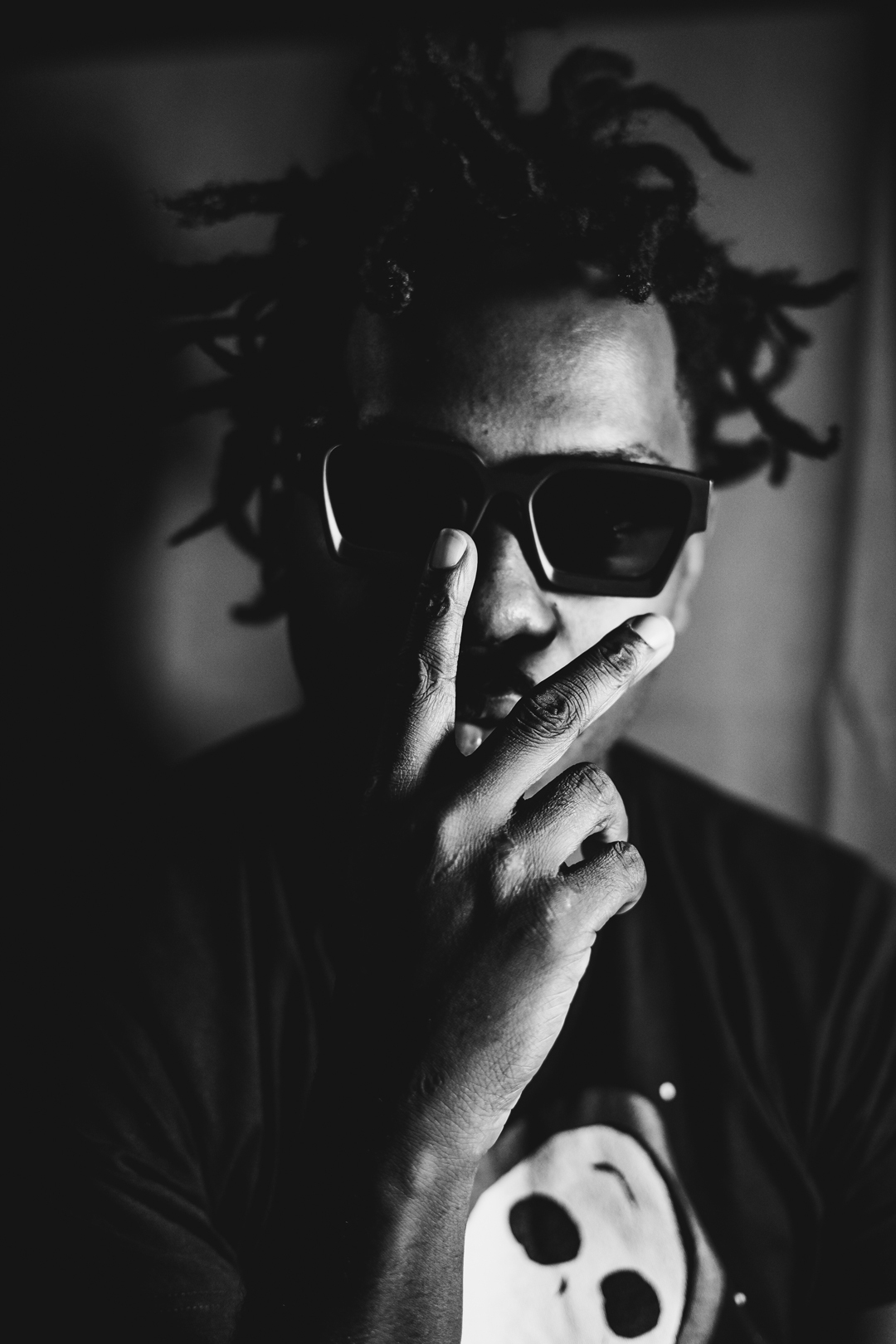
But the process allowed him to expand his artistry, including playing with more improvisational, jazz-inspired production techniques, as well as brushing up on basic musical skills, like piano. Maybe most importantly, it also simply gave him something to do.
“It was kind of the thing that kept me going,” he says. “I get bored easily, and when I get bored, I start getting anxiety. I just have to find different ways to challenge myself, and putting this project together was a way for me having something to work toward.”
Young and I are speaking over the phone nearly a thousand miles apart, as he looks out on what he tells me is a grey melancholy day in L.A., and I look out upon a rare sunny winter afternoon on the Oregon Coast. I comment that we seemed to have magically switched weather for the day, and we both chuckle a bit, but I can tell neither of us is feeling particularly inspired at first.
Channel Tres gave me one of his first interviews a few years ago, not long after he cold-emailed his homemade demo to a long list of label execs and landed a deal with L.A. outfit Godmode Music as a result. Since then, I’ve watched his trajectory as an artist grow immensely, compelling me to daydream that we’d one day talk for a cover story set in a colourful setting.
The universe, however, had other plans, and now together we’re simply trying to survive day 200-something of quarantine. We mainly talk about the coping mechanisms we’ve discovered during these strange and surreal times, some good, some bad. “I might eat the wrong food or I’m not supposed to be drinking soda all day, [but then] I’m drinking soda all day,” he confesses. “Just not doing anything to really feed the positive side of my mind, just kind of letting my brain go on autopilot. Which sometimes is good, but it’s not good to do that all the time.”
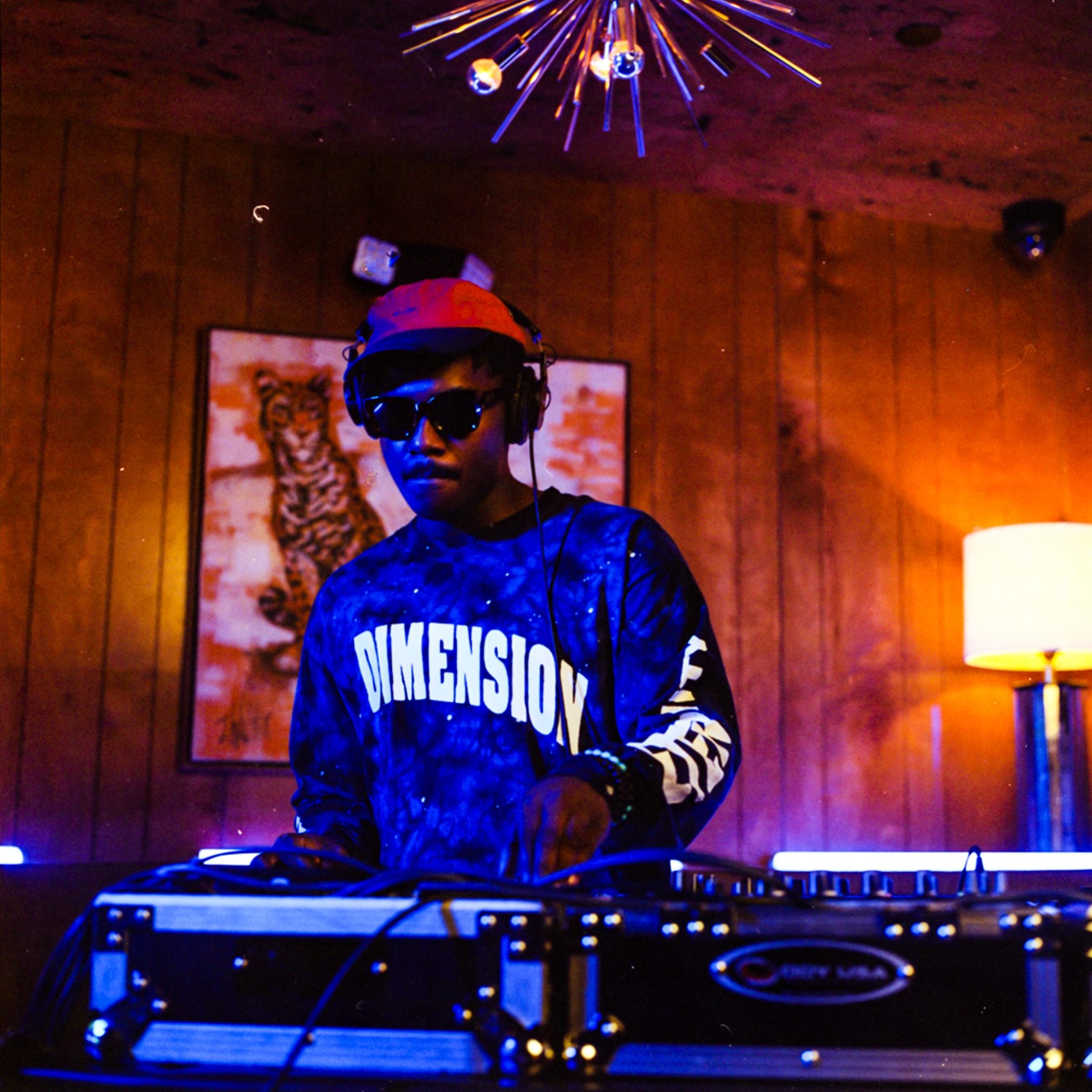
Suffice to say, Young, like the rest of us, has been trying his best. In fact, he’s generally been proactive, not only using his time at home to grow artistically, but also emotionally — to address certain issues he’d been ignoring over the years in the midst of chasing success.
These issues are brought up almost immediately on the intro to ‘i can't go outside’, when he raps over a floating beat shuffling in reverse, “I need to stop waking up in cold sweats/I need to forget some of the things I did.” He’s referring to the start of lockdown, he tells me, when he would often have intense nightmares centred around places of his past, like his high school or childhood home.
These flashbacks inspired him to seek out a therapist for the first time since college, and their sessions together played a big role in the making of the EP. “I was just unpacking a lot of trauma I went through, and so it naturally crossed over,” he says. “This project was a lot of just me learning how to channel those different things in my head.”
Nowhere is that more evident than on the plodding ‘broke down kid interlude’, where a pitched-up Young rattles off thoughts about the inner tug-of-war that sometimes occurs between his old self, the kid who grew up in Compton, and his newer, more successful self, the artist who just bought a house with money from his music.
I ask if that conflict comes from a place of doubt, whether being out of the routine of performing has stirred up a sense of imposter syndrome at all. He acknowledges my interpretation but says the song is primarily centred around healing wounds from his childhood. “Yes, I’m forming a path; yes, I’m a rockstar; yes I’m all that, and I love it,” he says. “But I’m still Sheldon, I’m still that little boy from Compton and Lynwood inside. I still have to nurture him and make sure he’s alright.”
Read this next: Imposter syndrome in the music industry is rife, but it's not impossible to overcome
One way he’s been doing that in quarantine is with innocent child-like activities, like riding a bike or jump roping. Some of ‘i can't go outside’ reflects that rediscovering of joy, like ‘2000 chevy malibu’, a breezy homage to his first car made from a four-year-old beat he found on his laptop and revamped. There’s also the project’s single, ‘Skate Depot’, a thumping groove that harkens back to the sonics of his first two projects by blending thick bass and drum layers with smooth chords.
In the video for the single, Young is sporting a fuzzy peach-coloured shirt and blueberry pants as he zooms around a sunny L.A. neighbourhood on old-school roller skates. I watch it after our conversation and smile with the new understanding that he’s checking in on his inner child by roller skating.
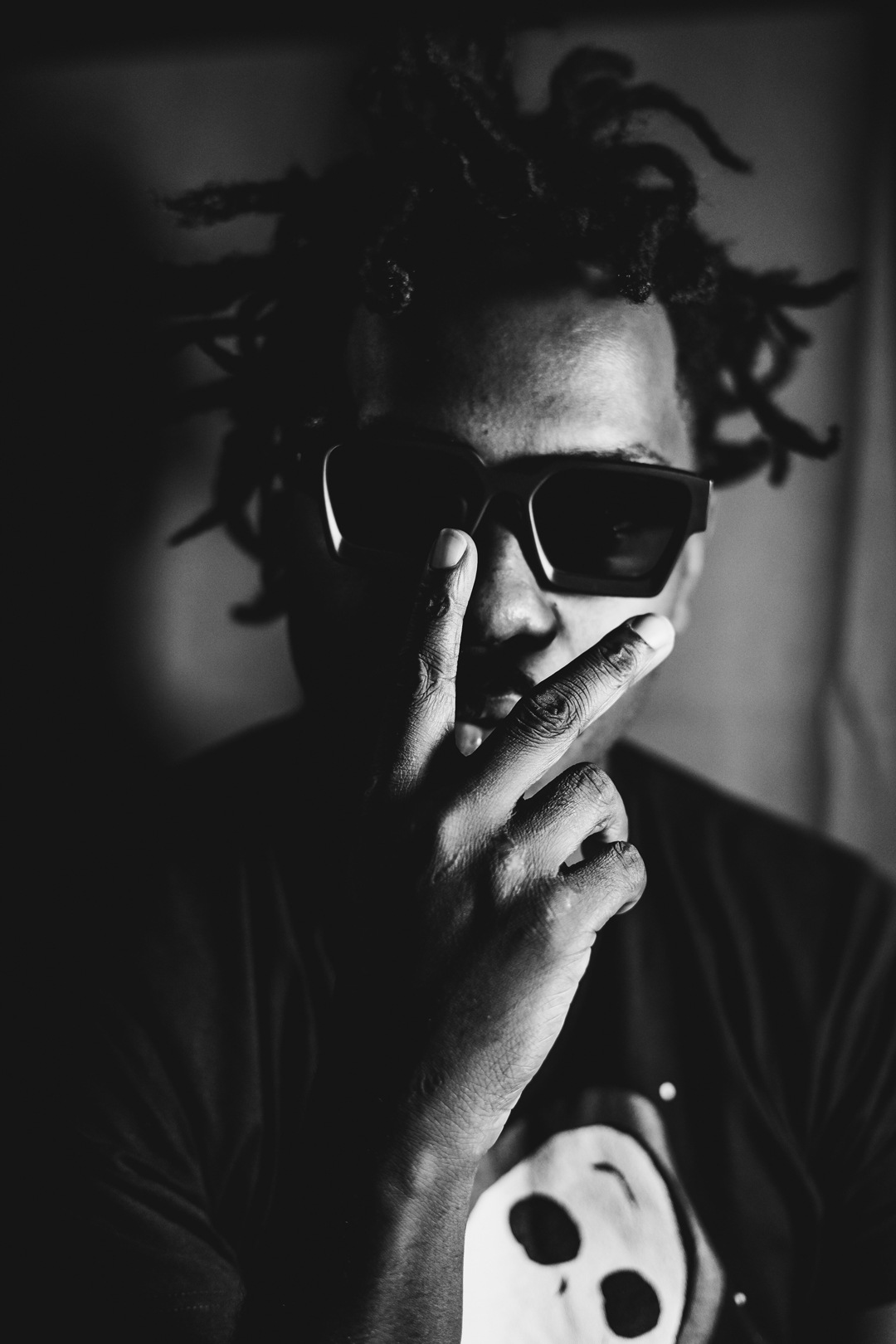
But few of us have been able to focus solely on ourselves in quarantine, which is partly why it’s been so antagonizing. People are dying every day — nearly 3,800 in the United States as I write this — and the disease has disproportionately targeted communities of color and those who are most vulnerable, like the elderly.
Out of precaution, Young has been distancing himself from his loved ones and trying not to worry about them. This was especially difficult last summer, when many of his friends were participating in the social justice protests in the wake of the murder of George Floyd, a time in L.A. he now describes as being “hot” for its boiling levels of tension. “I’m outside, and it’s just motherfuckin’ police and... like 50 of ‘em on one car, the SWAT team,” he recalls. “I’m seeing all that shit, friends are at protests. And then we are losing our loved ones [cause of COVID] at the same time, so it was just a lot. I had no faith in humanity, I had no faith in nothing.”
Even his faith in music waned as he was still grappling with his recent show cancellations and unsure of how he was going to make income going forward. This, along with the vandalization of his car around that time, filled him with an anger that made the joy-filled dancefloors he was orchestrating before the pandemic seem like a distant dream.

But something — maybe his therapy sessions, maybe simply his duty to the job — led Young back to his creativity, where he was able to channel his anger into art, specifically the song ‘fuego’, named for the intense emotions he was feeling both in himself and around L.A. at the time. “[The song is] just me questioning art, questioning myself as a man, as a Black man, questioning the world, why is it the way it is,” he describes. “But all in all, with all the negativity that’s going on, for me and my family I’m going to make sure we’re fuego — I’m gonna make sure we’re fire.”
Read this: The Cover Mix: Channel Tres
So to help finish the record he recruited rapper Tyler, The Creator, which he found symbolic in that Tyler is “another great Black man that’s done tremendous things.” Together, over a beat that smoulders with distorted bass and sprinkles of Rhodes, they rap flaunty lines and hurl cheeky insults at their competition like, “You just a beat they gon’ flip.”
It continues Young’s thread of tongue-in-cheek songs that carry political undertones, like ‘Sexy Black Timberlake’ on 2019’s ‘Black Moses’ EP, a seemingly carefree groove that’s actually pointing out the objectification of Black men, and ‘Jet Black’ from his debut, a celebration of Black pride within a two-step anthem.
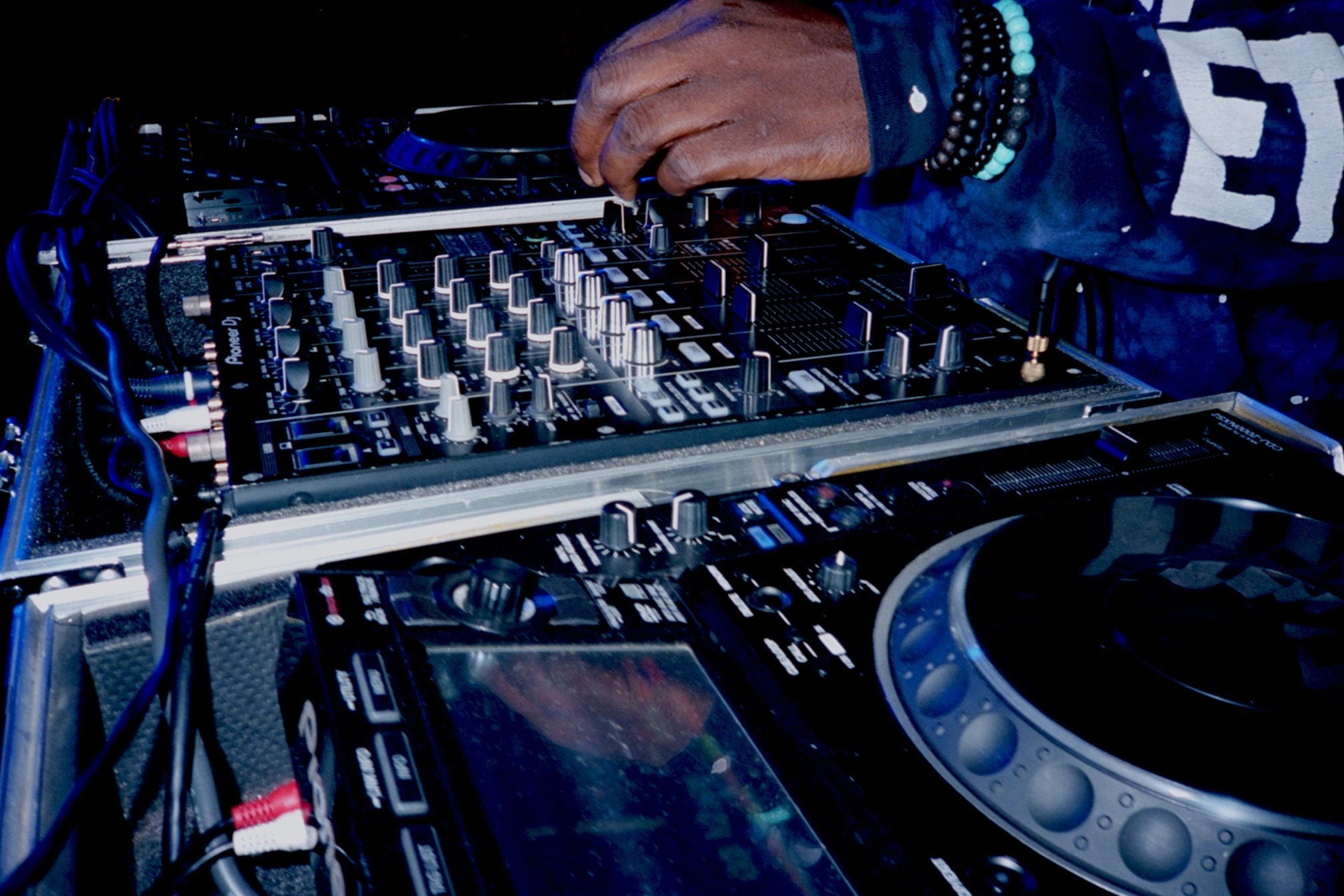
‘Fuego’ also marked the inflection point where Young stopped viewing quarantine as an inhibitor and instead an opportunity to grow. Which then set in motion the recording of ‘i can't go outside’, as well as the creation of Art For Their Good, the production company that released the project and will one day function as a non-profit for kids in the Compton area, he hopes. During lockdown he was able to donate instruments to the Compton Unified School District and host some online production classes for students.
When I ask him what’s changed since those early days of lockdown, Young is quick to point to his mental health. “I’m a lot stronger than I was,” he says. “I’m just very positive and excited for when things do get back up and running for me.” He then eagerly describes how he wants his tour setup to be bigger and more dynamic than before once venues reopen. But before he goes too deep into the future, he catches himself and walks back a bit, no doubt another coping mechanism considering we’re still unsure of when this will all end. “I’m also just taking my time in being at home and really cherishing it, appreciating it and just being better with myself,” he reiterates. “Self-love is very important, and [I’m] just learning how to do that better.”
I take his advice to heart as we hang up, and we’re once again both left to our own devices.
Channel Tres 'i can't go outside' is now via Art For Their Good
Reed Jackson is a freelance writer, follow him on Twitter
Read this next: Get the best of Mixmag direct to your Facebook DMs
